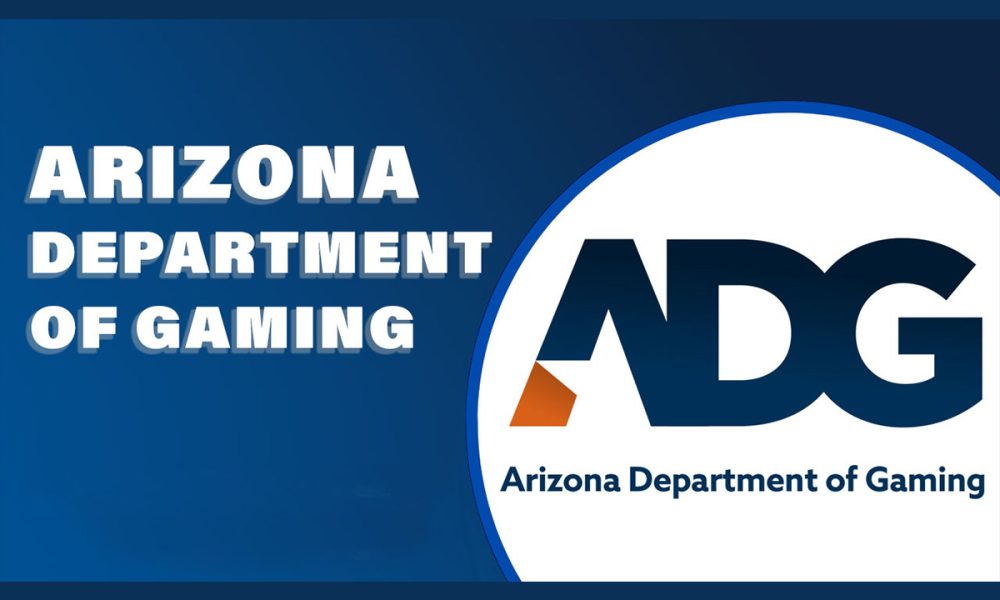

Compliance Updates
EGBA Welcomes European Parliament’s Approval of New European Digital Identity
The European Gaming and Betting Association (EGBA) has welcomed the recent approval by the European Parliament of a Regulation introducing a new European Digital Identity (e-ID). The Parliament’s endorsement of the e-ID marks a significant milestone in the journey towards a more secure and inclusive digital environment for all citizens across the European Union (EU). The new e-ID will be a transformative tool that addresses several concerns in the digital sphere.
According to the Regulation, adopted by the Parliament on 29 February, the e-ID will allow citizens to identify and authenticate themselves online without having to resort to commercial providers – a practice that has, in the past, raised trust, security and privacy concerns related to the sharing of consumer data with third-party platforms. Using such a standardised, non-commercial identification method will ensure greater privacy protection for consumers, among other benefits. Additionally, the e-ID enhances security by offering consumers and businesses a trusted and standardised tool for online identification, minimising the risk of identity theft and fraud.
This streamlined approach will not only increase user confidence in digital transactions but will also reduce costs and administration for businesses, including gambling operators, by providing a singular verification tool they can use across the EU, instead of paying high fees for the use of commercial databases. The success of the e-ID will of course depend on a high participation rate among citizens. The use of the e-ID will be entirely voluntary for citizens and businesses, including gambling operators. Thus, gambling operators have the flexibility to determine whether they wish to integrate the e-ID tool into their know-your-customer processes.
EGBA has been a supporter of the e-ID since it was proposed by the European Commission in 2021, recognising its potential to revolutionise the way online services are accessed and utilised in the EU, offering a streamlined and secure means for individuals to verify their identity and engage in various digital activities. Since the proposal, EGBA has been encouraging the EU institutions to ensure that businesses, including gambling operators, can access and use the e-ID and benefit from its use. For the online gambling sector, the e-ID holds particular significance, as it provides players with an easy, secure, trustworthy, and singular option to confirm their identity in the EU.
The e-ID law, which amends the EU’s eIDAS Regulation, will now have to be formally endorsed by the EU Council of Ministers before its official adoption, expected before summer 2024. As a Regulation, it will automatically apply across all EU member states from the moment of its adoption.
“We welcome the European Parliament’s approval of a unified digital identity framework and are confident that the use of the new e-ID in our sector will lead to a more seamless and trustworthy online experience for players and help to reduce costs and administration for gambling operators. This innovative tool represents an important step towards building a more secure and user-friendly digital ecosystem, aligning with EGBA’s core objectives of promoting integrity, transparency, and a safe, consumer-centric playing environment,” Maarten Haijer, Secretary General of EGBA, said.
Arizona Department of Gaming
Arizona Department of Gaming Issues Cease-and-Desists on “Phoenix Dream Home Sweepstakes”

The Arizona Department of Gaming (ADG) issued cease-and-desist orders to Raffall, a company based in the UK, and to an Arizona resident using the platform to promote the “Phoenix Dream Home Sweepstakes,” currently advertised online and through a separate website, winthisazhome.com, which is marketing the chance to “Win a Luxury $1.3M Arizona Mountainside Home”.
According to the Department’s investigation, the promotion required participants to purchase entries for a prize to be awarded and promised either a home transfer or a cash payout, depending on sales volume. The investigation further determined that the organizers intended to profit from ticket sales. Based on these findings, the Department alleges the activity constitutes an illegal gambling operation under Arizona law.
As part of the enforcement action, Raffall has been directed to remove all gambling-related drawings or giveaways targeting Arizona residents, and the Arizona resident has also been ordered to cease promoting or conducting any unlawful gambling activity.
“Illegal gambling can take many forms and it does not matter if it is labeled a sweepstakes, raffle, giveaway, or drawing. Unregulated operations put Arizonans at risk because there is no oversight, and therefore no accountability or safeguards in place. The Department will continue to take enforcement action to protect consumers, and we urge the public to learn what is legal before participating in or hosting any gambling activity,” said Jackie Johnson, Director of the Arizona Department of Gaming.
The post Arizona Department of Gaming Issues Cease-and-Desists on “Phoenix Dream Home Sweepstakes” appeared first on Gaming and Gambling Industry in the Americas.
Australia
Entain’s Andrew Vouris to Speak at Regulating the Game 2026

Leading gaming law and regulation conference Regulating the Game has announced the newly appointed CEO of Entain Australia and New Zealand as its first Featured Speaker for its March 2026 event in Sydney.
The conference is scheduled to take place from 9 to 11 March 2026 at the Sofitel Sydney Wentworth.
Andrew Vouris, who was appointed CEO of Entain Australia and New Zealand in August, brings almost two decades of leadership experience in wagering, operations and innovation at some of Australia’s largest wagering operators.
His career spans senior leadership roles in Tabcorp’s multi-billion dollar wagering and media business, heading global operations of a pioneering esports and wagering platform, and partnering with private equity to build early-stage ventures in esports. Across these roles he has been deeply engaged in navigating complex regulatory and compliance challenges.
Since stepping into the CEO role at Entain Australia and New Zealand, Vouris has outlined his desire to embed a culture of “win, but not at all costs”, to return to the basics of selling bets and to lead innovation while ensuring customers are protected.
“I am grateful for the opportunity to speak at Regulating the Game 2026, which provides a unique global platform for advancing dialogue between regulators, industry and thought leaders,” Vouris said.
“At a time when public expectations and regulatory demands are at an all-time high, I look forward to sharing Entain’s vision for balancing sustainable growth, compliance leadership, and customer protection.”
Paul Newson, Principal at Vanguard Overwatch and founder of Regulating the Game, added: “Andrew’s leadership vision for Entain and his extensive track record across wagering and esports bring an important perspective to Regulating the Game 2026. His focus on culture, compliance and innovation aligns strongly with the values of the conference, and we are thrilled to feature his insights as part of this year’s program.”
The post Entain’s Andrew Vouris to Speak at Regulating the Game 2026 appeared first on European Gaming Industry News.
Balkan's
GLI Returns as Sponsor of the Regulators’ Roundtable at EEGS 2025

The Eastern European Gaming Summit (EEGS) proudly announces that Gaming Laboratories International (GLI) will once again return as a sponsor of the highly anticipated Regulators’ Roundtable at EEGS 2025, taking place on 27–28 November at Inter Expo Center, Sofia.
As the global leader in testing, certification, and professional services for the gaming industry, GLI has supported regulators, suppliers, and operators across more than 480 jurisdictions worldwide for decades. With a strong mission to ensure integrity, fairness, and transparency, GLI plays a pivotal role in shaping a trusted and sustainable global gaming environment.
The continued sponsorship of the Regulators’ Roundtable underscores GLI’s dedication to fostering dialogue, collaboration, and knowledge exchange between regulators and industry stakeholders. As one of the flagship sessions of EEGS, the Roundtable offers an exclusive platform to address pressing regulatory challenges, explore innovative solutions, and discuss strategies that will define the future of the sector.
EEGS 2025 will once again unite regulators, operators, suppliers, and thought leaders for two days of high-level discussions, networking, and knowledge sharing, reinforcing its position as the leading forum for gaming innovation and regulation in Eastern Europe and beyond.
Learn more & register here: https://eegamingsummit.com/register-for-super-early-bird-ticket/
For any sponsorship availabilities, see here: https://eegamingsummit.com/sponsorship-2025/
Together with partners like GLI, EEGS continues to be the meeting point for innovation, regulation, and collaboration in the gaming industry.
The post GLI Returns as Sponsor of the Regulators’ Roundtable at EEGS 2025 appeared first on European Gaming Industry News.
-

 gaming3 years ago
gaming3 years agoODIN by 4Players: Immersive, state-of-the-art in-game audio launches into the next generation of gaming
-
EEG iGaming Directory9 years ago
iSoftBet continues to grow with new release Forest Mania
-
News8 years ago
Softbroke collaborates with Asia Live Tech for the expansion of the service line in the igaming market
-
News7 years ago
Super Bowl LIII: NFL Fans Can Bet on the #1 Sportsbook Review Site Betting-Super-Bowl.com, Providing Free Unbiased and Trusted News, Picks and Predictions
-
iGaming Industry8 years ago
Rick Meitzler appointed to the Indian Gaming Magazine Advisory Board for 2018
-
News7 years ago
REVEALED: Top eSports players set to earn $3.2 million in 2019
-
iGaming Industry8 years ago
French Senator raises Loot Boxes to France’s Gambling Regulator
-
News7 years ago
Exclusive Interview with Miklos Handa (Founder of the email marketing solutions, “MailMike.net”), speaker at Vienna International Gaming Expo 2018







